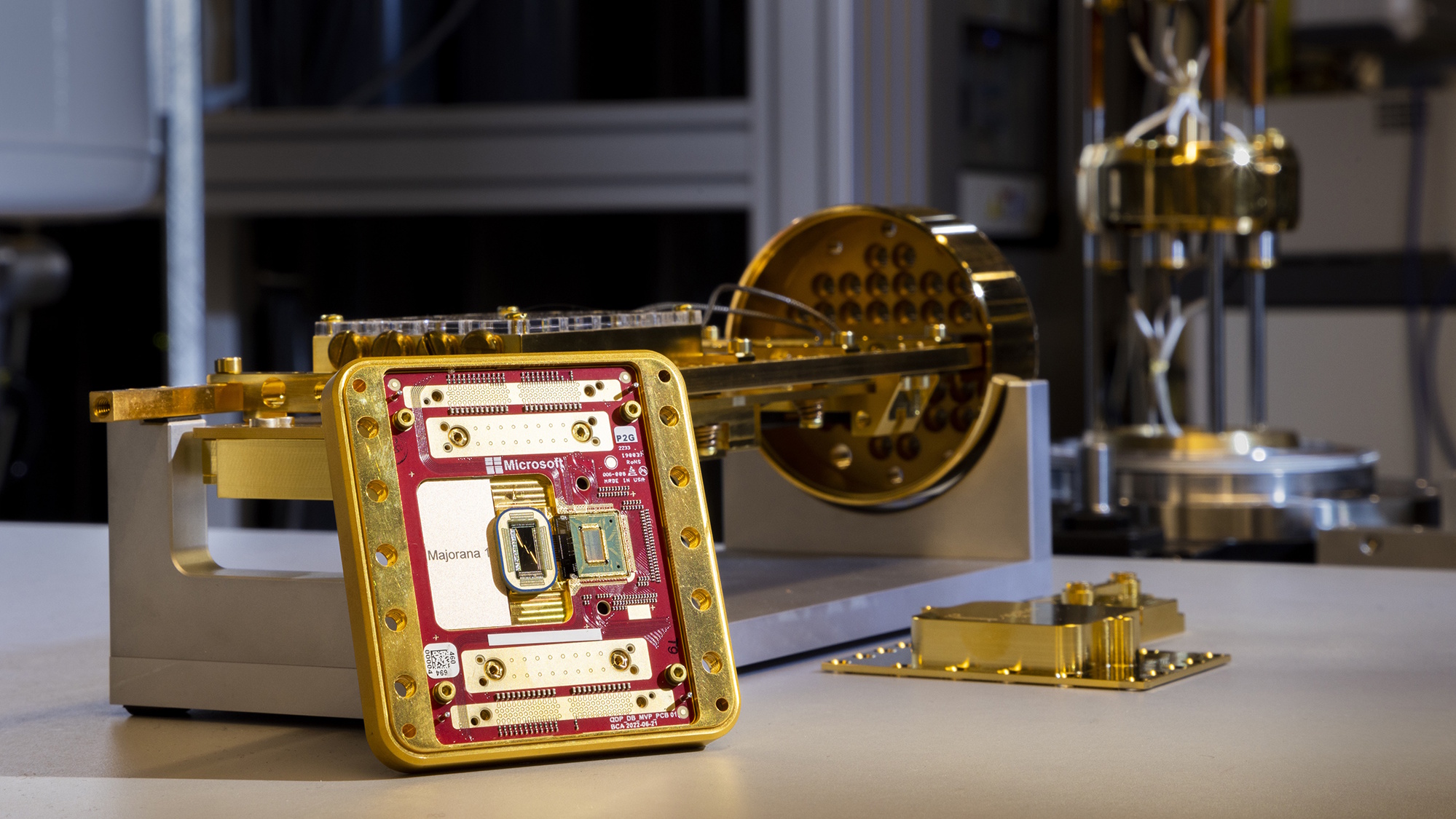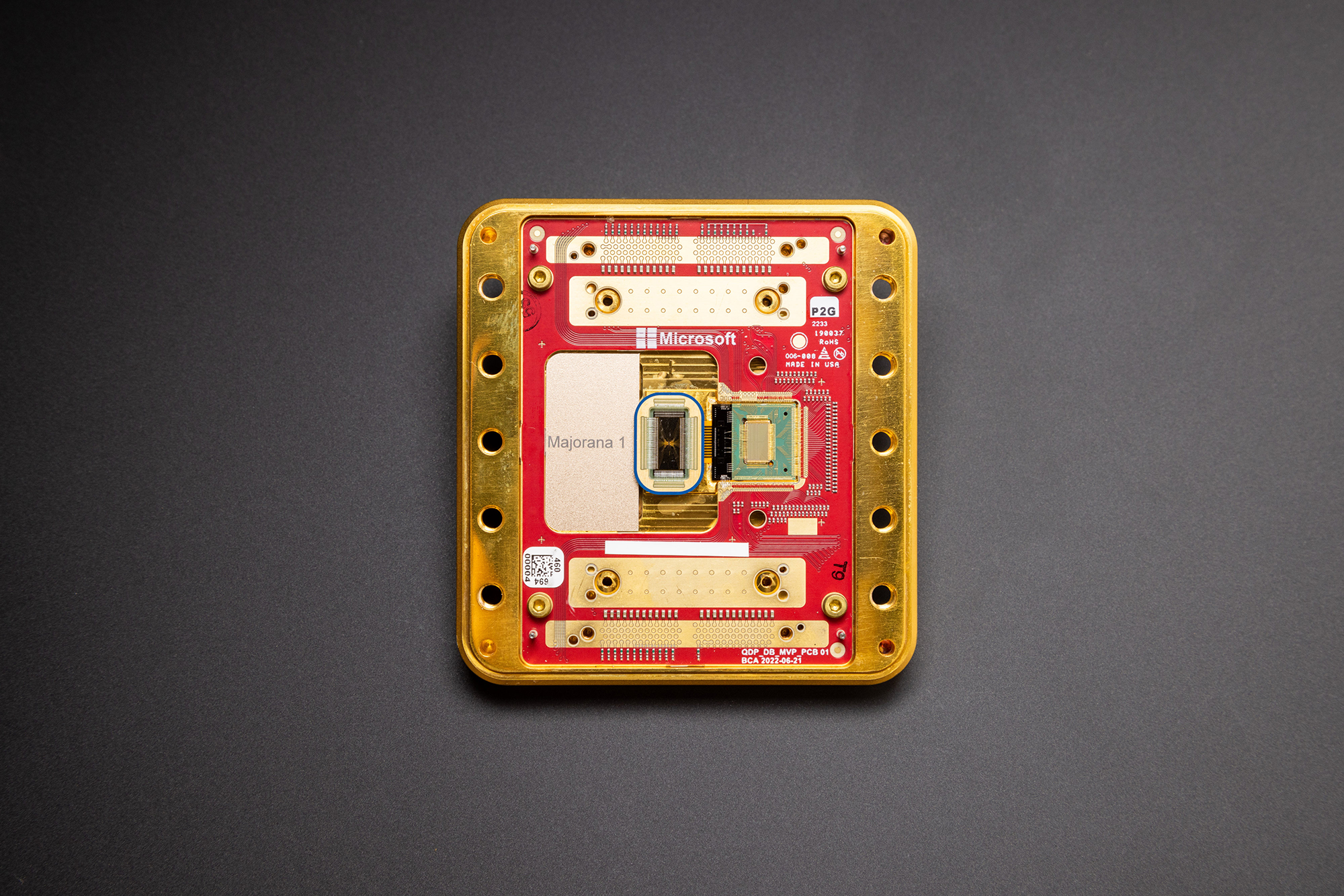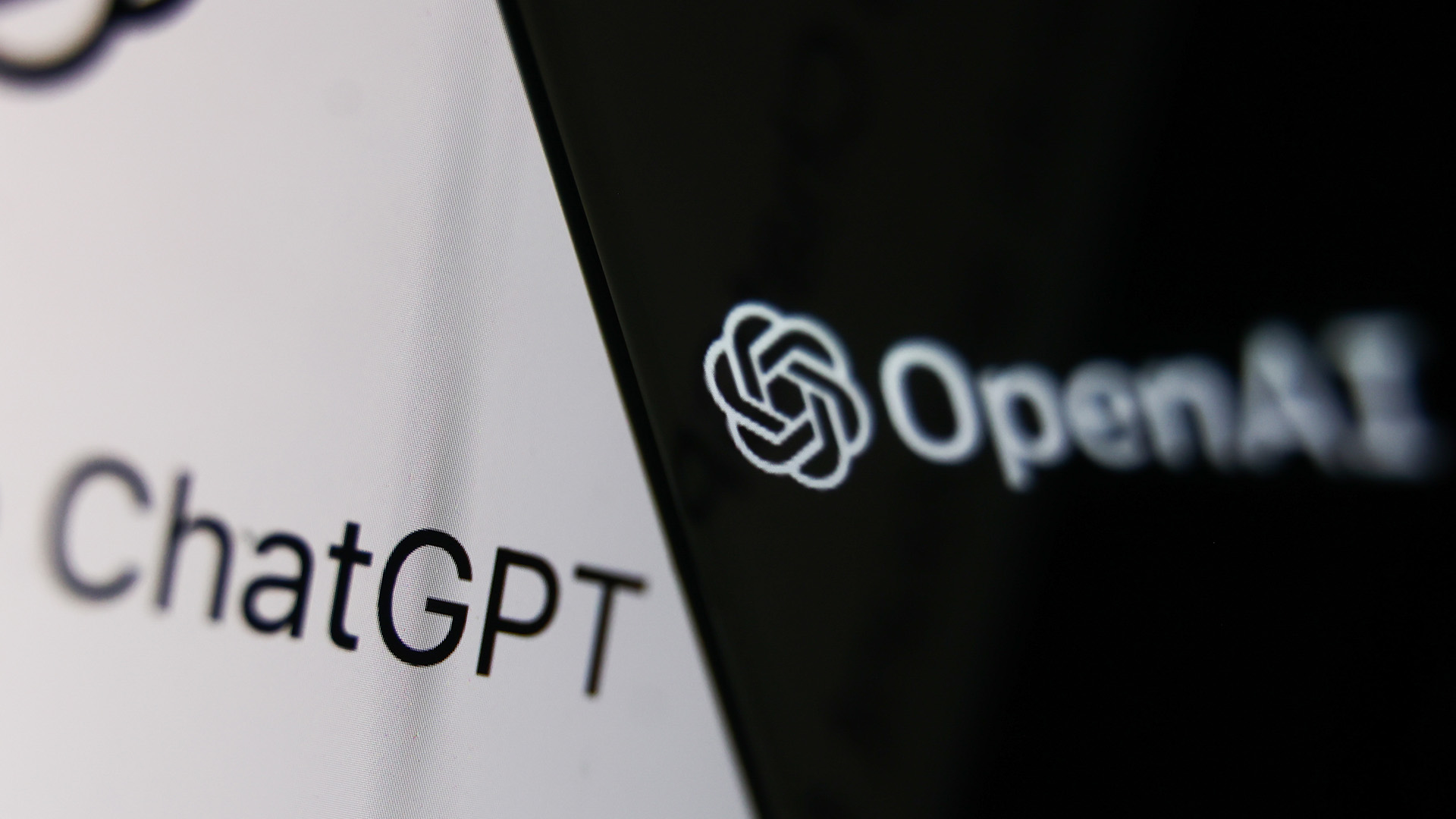
Yes, the scientists are doing weird stuff again, and this weird stuff is sure to lead to other weird stuff and plenty of even more peculiar technology in the future. At least, that's usually my reading of anything quantum computing related, and that seems to be the general gist of Microsoft's new quantum chip announcement.
Microsoft says the new chip, the Microsoft Majorana 1, is "the world’s first quantum chip powered by a new Topological Core architecture" that it expects will "realize quantum computers capable of solving meaningful, industrial-scale problems in years, not decades.
"It leverages the world’s first topoconductor, a breakthrough type of material which can observe and control Majorana particles to produce more reliable and scalable qubits, which are the building blocks for quantum computers."
In other words, Microsoft is claiming that this chip could bring us into the quantum computing age much quicker than people were expecting. And the quantum computing age should mean computing certain things orders of magnitude faster, with less energy expense, than in today's classical computing age.
Quantum computers use qubits rather than regular bits to represent information. These qubits can hold a state that is in some ways both 0 and 1 (in 'superposition'), or rather a little of column A and a little of column B. Another way of thinking about it is to say that a qubit can represent a probability that's either closer to 1 or to 0, and when it's measured its state 'collapses' to a nice whole number, a 1 or a 0.
This allows you to perform calculations probabilistically and then get a definite result when you measure it. It also allows you to explore multiple different calculations simultaneously to find the fastest route (the "correct" answer), which is where the real fun lies for its practical applications. (We'll set aside the fact that thinking of these calculations as actually happening simultaneously is apparently just a convenient but non-literal way of understanding what's going on—beats me.)

Some kinds of calculations can benefit from this probabilistic madness to the extent that Google claimed its recent Willow quantum chip could perform "a standard benchmark computation in under five minutes that would take one of today’s fastest supercomputers 10 septillion years—a number that vastly exceeds the age of the Universe."
The biggest gaming news, reviews and hardware deals
Keep up to date with the most important stories and the best deals, as picked by the PC Gamer team.
But the uses for such calculations at present—due to the low number of qubits we can pack into a quantum computer and the fact that quantum calculations require error correction—is very limited. The most imminent uses are in areas such as cryptography (hello national security outfits), but the hope is that with more qubits and more stable qubits, the uses will become industrial.
A couple reflections on the quantum computing breakthrough we just announced...Most of us grew up learning there are three main types of matter that matter: solid, liquid, and gas. Today, that changed.After a nearly 20 year pursuit, we’ve created an entirely new state of… pic.twitter.com/Vp4sxMHNjcFebruary 19, 2025
Not for another 15-30 years, though, according to Nvidia CEO Jen-Hsun Huang. But perhaps Huang hadn't predicted this new "topoconductor" breakthrough from Microsoft that allows for "more reliable and stable qubits" that can create quantum computers "capable of solving meaningful, industrial-scale problems". A topoconductor, by the way, which has allowed the creation of "an entirely new state of matter", according to Microsoft CEO Satya Nadella's recent post on X.
Such "industrial-scale problems" that quantum computers will be able to solve will presumably be of the kind that ginormous classical supercomputers currently handle. Perhaps even AI—mixing quantum computing with AI would be a very cool, if slightly terrifying, prospect. That is, cool because I'm sure AI that's granted the horsepower of quantum compute would be able to do some spectacular things, and terrifying because I don't want to know where that'll leave us puny humans in the wake of it.
Majorana 1 seems to address the stability side of the "how do we make quantum computers industrial?" question, but it also seems like it might address the quantity side, too. That's because Microsoft claims the qubits created using this new method are smaller.

What is artificial general intelligence?: We dive into the lingo of AI and what the terms actually mean.
Microsoft CEO Nadella says: "The qubits created with topoconductors are faster, more reliable, and smaller. They are 1/100th of a millimeter, meaning we now have a clear path to a million-qubit processor."
Microsoft technical fellow Chetan Nayak explains: "Whatever you’re doing in the quantum space needs to have a path to a million qubits. If it doesn’t, you’re going to hit a wall before you get to the scale at which you can solve the really important problems that motivate us."
I did go down a rabbit hole attempting to discover exactly what makes this new Majorana 1 architecture tick, but given I don't have an advanced degree in quantum mechanics I think I'd better keep schtum. It seems to have something to do with using pairs of Majorana fermions (a kind of newly discovered quasiparticle, ie, an emergent particle, that's indistinguishable from its antiparticle) that have their paths along spacetime intertwined.
This seems to be useful because one particle decohering wouldn't cause the other one to decohere, meaning the 'information' would be maintained regardless, thus improving qubit stability. Or something.
Yeah, take all that with a duffel bag of salt. I'll leave it to the big wigs with the multimillion research grants and decades of brainy math behind them. Ditto any judgments as to whether Microsoft's new quantum chip actually represents a breakthrough that could see us in a quantum age much sooner than we anticipated.

Jacob got his hands on a gaming PC for the first time when he was about 12 years old. He swiftly realised the local PC repair store had ripped him off with his build and vowed never to let another soul build his rig again. With this vow, Jacob the hardware junkie was born. Since then, Jacob's led a double-life as part-hardware geek, part-philosophy nerd, first working as a Hardware Writer for PCGamesN in 2020, then working towards a PhD in Philosophy for a few years (result pending a patiently awaited viva exam) while freelancing on the side for sites such as TechRadar, Pocket-lint, and yours truly, PC Gamer. Eventually, he gave up the ruthless mercenary life to join the world's #1 PC Gaming site full-time. It's definitely not an ego thing, he assures us.

